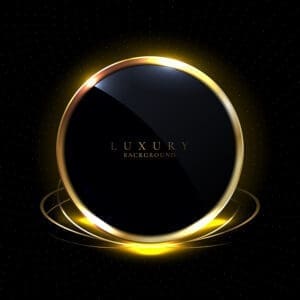 In our hotel industry, there is an abundance of data available to measure performance and rankings among peers. There are real-time guest ratings and reviews, competitive set performance indexes, hotel star ratings to mention a few. Generally, guest ratings relate to services and amenities provided at the hotel while performance indexes such as the RevPar index provide insight into the financial aspects of the hotel.
In our hotel industry, there is an abundance of data available to measure performance and rankings among peers. There are real-time guest ratings and reviews, competitive set performance indexes, hotel star ratings to mention a few. Generally, guest ratings relate to services and amenities provided at the hotel while performance indexes such as the RevPar index provide insight into the financial aspects of the hotel.
One area that is gaining traction among guests and performance is sustainability best practices. There are hundreds of sustainable best practices that a hotel can adopt and implement on-site. Sustainable best practices obviously have a positive impact to the environment. But the benefits don’t stop there. Many of the practices can reduce operating costs, while some can enhance guest experience and even increase employee retention.
On May 1, Greenview and Green Lodging News launched the second annual Green Lodging Trends Report, inviting hotels around the world to participate (for free) and benchmark their sustainable practices.ÊThere are around 100 sustainable practices to benchmark. The 2016 Report included data collected from 2,161 hotels located in 44 countries. And in the findings, nine sustainable practices emerged as the must-have practices to stay ahead of the game, with at least 75 per centÊof hotels having these in place.
Routine tracking of energy and water
Peter Drucker’s famous saying, Òif you can’t measure it, you can’t manage itÓ, resonates well with this practice. With routine monitoring of your energy and water usage, hotels can not only understand their consumption and cost patterns, they can also identify issues before it becomes a big problem. For example, anomalies of water consumption pattern can indicate a leak in the pipes, which can lead to a huge spike in water bills.
Energy efficient lighting
What is considered an Òenergy-efficientÓ lighting evolves over time. Today, LED is considered a good choice as the energy-efficient lighting source. Cost of LEDs has been a big barrier in the past but costs have come down, and there are utility rebates available in certain locations, so hotels should look for these opportunities.
Digital thermostats
I don’t know how many times I checked into my guestroom and had the air-conditioning blasting. At some hotels, I can quickly change the digital thermostat to my preferred temperature. While at others with a knob design with only three settings or an inexact dial, I am uncertain as to what temperature I am setting it to. This practice not only increases guests’ experience, but can also save hotels a lot of money in energy bills.
Low-flow water fixtures
Low-flow water fixtures like low-flow toilets, faucets and showerheads save water consumption and cost, but it can also negatively impact guest experience. Luckily, new technology is emerging that balances the two needs.
Native or drought-tolerant landscaping
Native or drought-tolerant landscaping reduces water consumption significantly. With proper planning and selection of plants, hotels can save water consumption and reduce water bills.
Vegetarian menu options
Guest health and well-being concerns are on the rise, at high-speed. Not only is this trend a healthy choice for human consumption, but also better for the environment as we’re discovering just how big the environmental footprint of food really is.
Use of low-VOC or VOC-free materials
This impact not only your guests but also your employees’ health and well-being. Toxic materials that harm the well-being of your guests and employees should be avoided.
No automatic guest room newspaper delivery
Personally, I like to read my news on my phone or laptop. I don’t like flipping through a bulky newspaper, and some of them still smell bad and stain my fingers. So, when newspapers are delivered to my guestroom automatically, it goes straight into the waste bin, creating a lot of unnecessary waste. Make this an opt-in service or leave newspapers in the lobby area for guests to pick up and avoid (literally) a ton of paper waste.
Linen and towel reuse
I put this practice last to avoid possible eye-rolling or judgement that the eight other practices above would be just as ubiquitous and unworthy for a quick-read. Though it’s hard to find anyone who doesn’t know what a linen and town reuse practice is, there are still hotels that don’t have this in place.ÊI’m guilty of rolling my eyes at some of the ridiculous messaging for why requesting for linen and towel reuse is good, the facts are that this practice saves time, money and materials. This is one of the easiest sustainable practices to put in place. But do consider better messaging than the typical Òsave mother earthÓ. Provide key stats instead, such as percentage of guests reusing towels at your hotel, reduction of water and energy consumption with the program in place, etc. There are also variations of the program that work well such as replacing linens and towels only upon request or every three days or even complete housekeeping opt-out program, usually in exchange for hotel points.
If these practices are relatively new or you know them but you haven’t implemented them yet, know you are falling behind the curve. If you’ve implement all nine practices above, you’re doing great. But the race doesn’t stop there. Remember, there are hundreds and hundreds of sustainable best practices and every year more innovative practices are emerging. Stay in tune with the trends and stay ahead of the curve by participating in the 2017 Green Lodging Trends Report survey.
By Grace Kang
 Grace is Managing Partner of Greenview, a sustainability consulting and research firm providing hospitality organizations with their strategy, programs, and reporting, and hospitality industry with industry insight, trends and benchmarks. She has a focused background in the hotel industry with over 15 years of experience in various functional roles, particularly in driving business through data analysis, reporting and strategic programs. She brings corporate perspective from working at top global hotel brands such as Starwood Hotels and Resorts and Marriott International.ÊGrace earned two degrees from Cornell University, a Bachelor of Science from the Hotel Administration School and Master of Business Administration from the Johnson Graduate School of Management.
Grace is Managing Partner of Greenview, a sustainability consulting and research firm providing hospitality organizations with their strategy, programs, and reporting, and hospitality industry with industry insight, trends and benchmarks. She has a focused background in the hotel industry with over 15 years of experience in various functional roles, particularly in driving business through data analysis, reporting and strategic programs. She brings corporate perspective from working at top global hotel brands such as Starwood Hotels and Resorts and Marriott International.ÊGrace earned two degrees from Cornell University, a Bachelor of Science from the Hotel Administration School and Master of Business Administration from the Johnson Graduate School of Management.



















